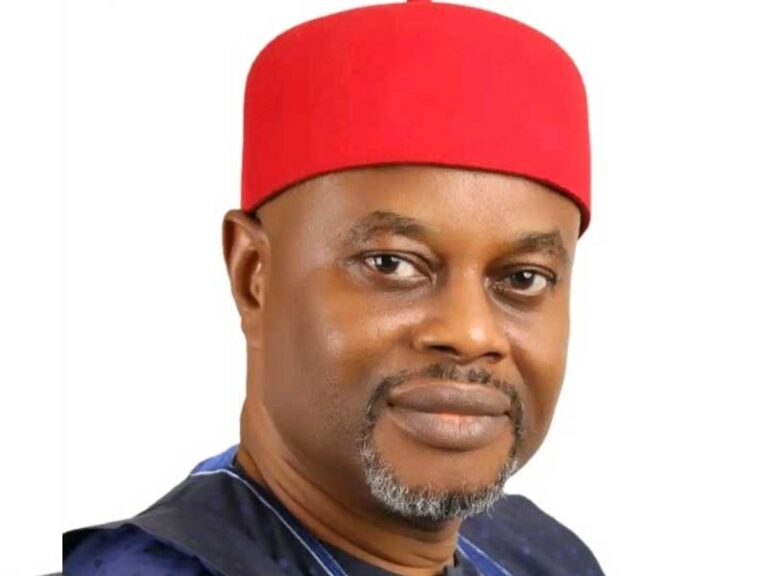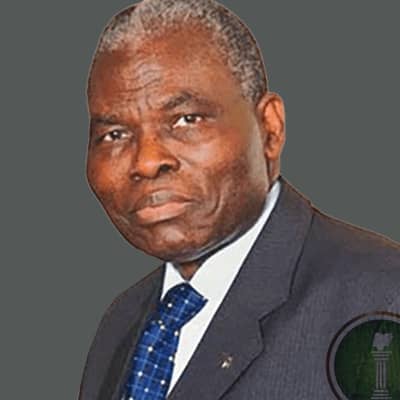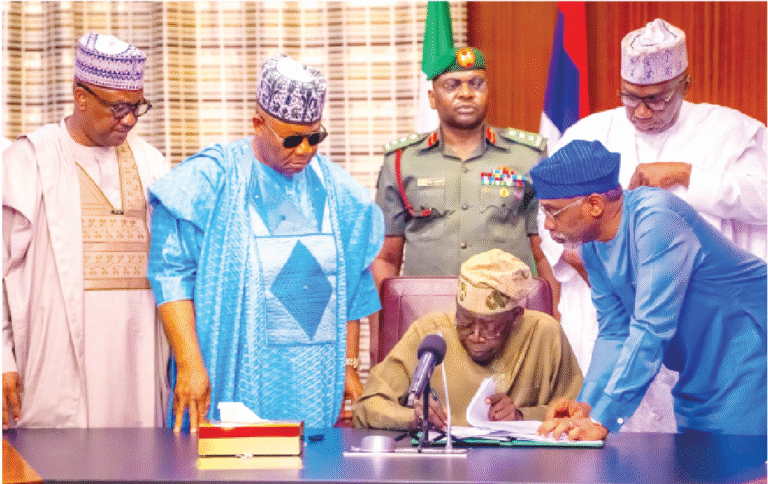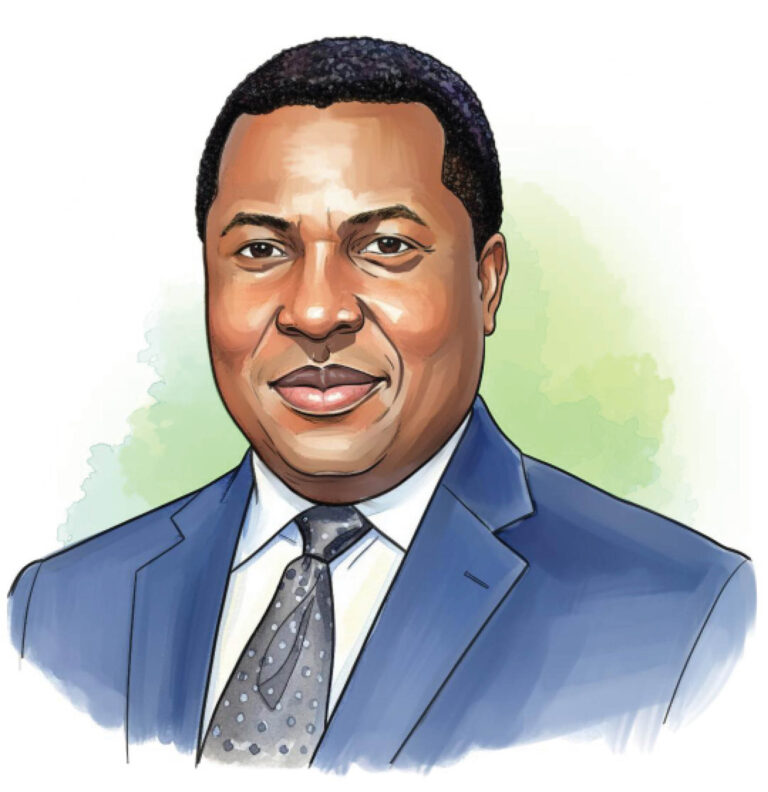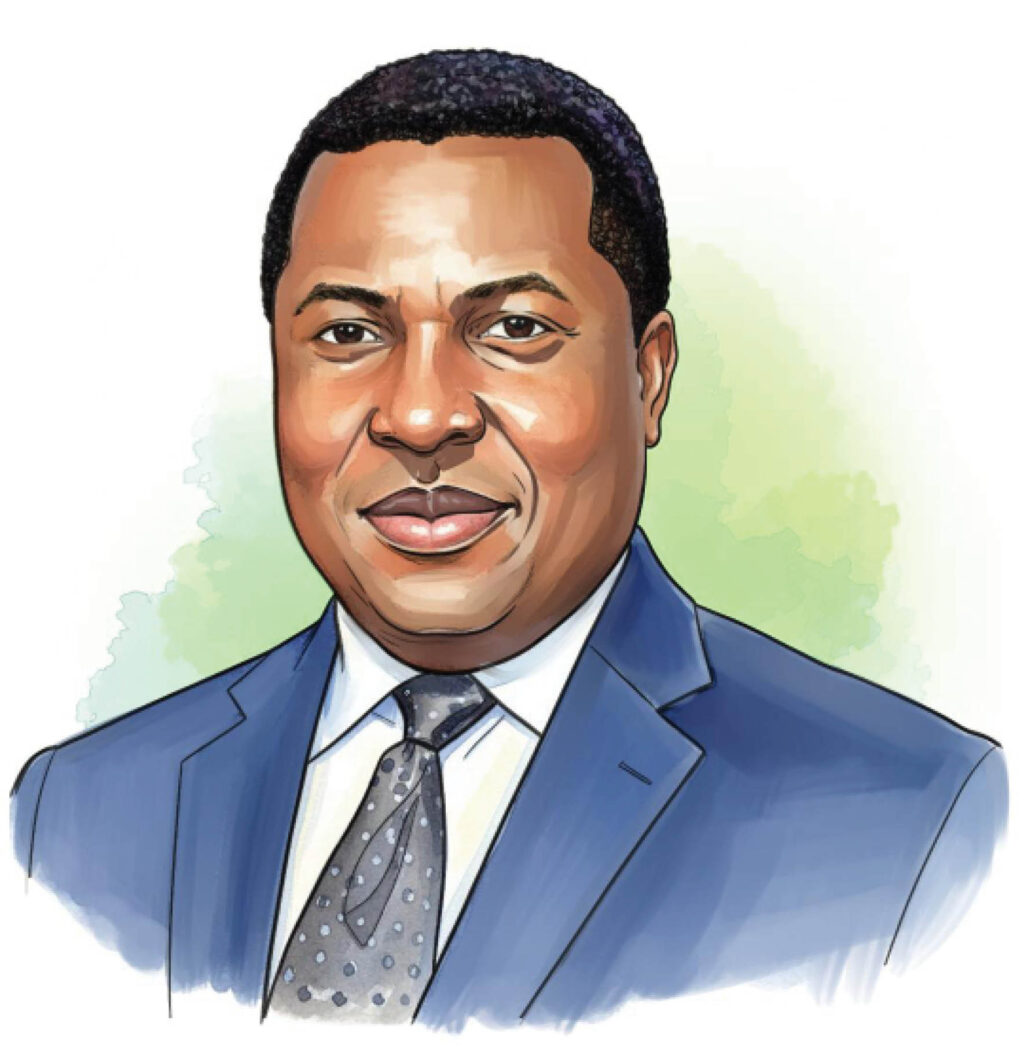
The appointment of Professor Joash Ojo Amupitan (SAN) as Chairman of the Independent National Electoral Commission (INEC) has drawn attention from both political and academic circles, not only for its timing but also for the man behind the name.
While the presidency and Kogi and Plateau state governments have hailed the decision as a nod to merit and inclusiveness, those who know Amupitan personally paint a picture of a disciplined academic with a reputation for fairness and firm administration.
A native of Ijumu Local Government Area of Kogi State, Amupitan has spent most of his professional life in Plateau State, rising through the ranks at the University of Jos to become Deputy Vice-Chancellor (Administration). His appointment comes at a time when public confidence in INEC remains fragile, and expectations of reform are high.
Amupitan’s appointment followed the exit of Professor Mahmood Yakubu, who served two terms as INEC chairman from 2015 until Tuesday. Presidential spokesman Bayo Onanuga, in a statement on Thursday, said President Bola Ahmed Tinubu presented Amupitan’s nomination to the Council of State to fill the vacancy.
According to Onanuga, Amupitan, from Ijumu Local Government Area of Kogi State, becomes the first person from the state to be nominated for the position and is considered “apolitical.” The Council of State reportedly endorsed the nomination unanimously, with Kogi Governor Ahmed Usman Ododo describing him as “a man of integrity.” Tinubu is expected to forward his name to the Senate for confirmation, in line with constitutional requirements.
The INEC chair
A Professor of Law at the University of Jos, where he obtained his degrees, Amupitan, 58, specialises in Company Law, Law of Evidence, Corporate Governance and Privatisation Law. He became a Senior Advocate of Nigeria (SAN) in September 2014.
According to his profile released by the presidency, he was born on April 25, 1967.
After completing primary and secondary education, he attended Kwara State Polytechnic, Ilorin, from 1982 to 1984, and the University of Jos from 1984 to 1987. He was called to the bar in 1988.
He earned an LLM at UniJos in 1993 and a PhD in 2007, amid an academic career that began in 1989, following his National Youth Service at the Bauchi State Publishing Corporation in Bauchi from 1988 to 1989.
Currently, he serves as the Deputy Vice-Chancellor (Administration) at the University of Jos, a position he holds in conjunction with being the Pro-Chancellor and Chairman of the Governing Council of Joseph Ayo Babalola University in Osun State.
Among the academic positions he has held at UniJos are: Chairman of the Committee of Deans and Directors (2012-2014); Dean of the Faculty of Law (2008-2014); and Head of Public Law (2006-2008).
Outside of academics, Amupitan serves as a board member of Integrated Dairies Limited in Vom, a member of the Nigerian Institute of Advanced Legal Studies Governing Council, and a member of the Council of Legal Education (2008-2014), among other roles. He was a board member of Riss Oil Limited, Abuja(1996-2004).
Amupitan is the author of many books on law, such as Corporate Governance: Models and Principles (2008); Documentary Evidence in Nigeria (2008); Evidence Law: Theory and Practice in Nigeria (2013), Principles of Company Law(2013) and an Introduction to the Law of Trust in Nigeria (2014). He is married and has four children.
Beyond credentials
Beyond credentials, his associates and former students in the University of Jos also shared some insights to the personality of the man that has now been saddled with the leadership of the electoral body.
Professor Ezekiel Major Adeyi, a colleague at the University of Jos who has known Amupitan for more than three decades, describes him as an administrator who values order and process.
“His appointment as DVC (Administration) was seen by everyone in the Senate as a plus for the university,” Adeyi said. “As Head of Department, he ensured that the Law Department became a reference point for others. When he served as Dean, he resolved long-standing delays that kept law students from proceeding to law school on time.”
Adeyi said Amupitan approached university administration with calm logic rather than force. “He’s not the bossy type. He presents his arguments logically and stands by them. I have never known him to take a position that compromises integrity, either in Senate or committee work. He believes in doing things the right way, even when it is not convenient.”
On his new role, Adeyi said, “He’s not partisan. He has friends across divides and says things as they are. I think his appointment reflects a search for credibility. He’s content with what he has, and that gives him independence.”
Professor Oyelami Thomas, a fellow law lecturer and one-time classmate, recalls Amupitan’s seriousness from their student days. “We were together in the NLL class in 1990. He was the youngest but one of the most focused,” he said. “He became a professor long before most of us thought possible. When he became Dean, he encouraged others, myself included, to aim higher.”
Thomas said what stood out for him was Amupitan’s consistency. “In academia, you find all sorts of behaviour, but he has managed to stay clear of scandal. He works hard and stays professional. He doesn’t bring politics into his relationships or responsibilities.”
He believes those qualities will be useful in leading INEC. “He has the capacity: academically, morally, and physically. I don’t know him to have any political leanings. He prefers the rigour of academia to political games. That might be what the commission needs right now.”
Lawal Ishaq, a Jos-based lawyer who studied under Amupitan in the early 1990s, remembers him as a demanding but fair lecturer.
“Prof. Amupitan taught us Company Law in 1991. He was strict and punctual. He came to class prepared and made sure we understood the subject before leaving,” Ishaq said. “We respected him because he took teaching seriously. He didn’t cut corners.”
Ishaq said he was not surprised by the appointment. “He has always valued integrity. For someone like him, leading INEC is an extension of what he has always done, enforcing order and fairness. I believe he’ll take the same disciplined approach to this new job.”
Past statements on budget padding, whistleblowing
In 2016, Professor Amupitan sparked public debate when he argued that the controversial practice of “budget padding” was not unlawful under the Nigerian Constitution.
Speaking in an interview with ThisDay, Amupitan explained that the National Assembly has the constitutional mandate to scrutinise and approve budget estimates submitted by the executive, which naturally includes adjusting figures and allocations.
“As far as the constitution of Nigeria is concerned, there is nothing here that has been dishonestly or fraudulently done by the Speaker or by the Deputy Speaker (at least there is no proof of it) because they have acted within their legislative powers,” Amupitan said.
“It is if it was somebody that is not empowered by the law that you can now begin to say you have forged something. So, you need to understand the allegations or controversies around the budget padding in the National Assembly, and maybe the situation of forgery must be understood properly,” he added.
His comments came amid public uproar over the 2016 budget padding scandal, in which the then Speaker of the House of Representatives, Yakubu Dogara, was accused of inflating budgetary allocations. Dogara himself had controversially stated that “budget padding is not a crime under Nigerian law,” a position Amupitan largely echoed, grounding it in constitutional interpretation.
A year later, in 2017, Amupitan delivered the 81st inaugural lecture of the University of Jos titled “Nigerian Corporate Governance: From Concentrated Ownership to Dispersed Ownership – Which Way Forward?” In that lecture, he called on the National Assembly to urgently pass the Protected Disclosure and Whistleblowers Bill of 2016, describing it as essential to Nigeria’s anti-corruption efforts.
“The National Assembly should, as a matter of urgency, pass into law the Protected Disclosure and Whistleblowers Bill, 2016, to further enhance accountability and transparency in both the public and private sectors,” he said.
Amupitan used the platform to highlight deep structural inefficiencies in Nigeria’s governance and economic management, pointing to the mishandling of pension funds as a key example. He lamented that while pension assets had grown into trillions of naira, they remained largely idle or mismanaged.
“Pension funds now run into trillions of naira in Nigeria and remain unutilised and uninvested, thereby opening them up for misappropriation. The worst of it is that pensioners are short-changed by administrators,” he said.
He argued that pension funds could serve as a vital engine for economic development if properly restructured and governed. “It is against the above background that we advocate the reform of the pension scheme by building pension administrators into strong institutional investors since they have the powers to invest and manage pension funds and assets under sections 55(b) and 85 of the Pension Reform Act,” Amupitan proposed.
Linking governance failure to Nigeria’s economic challenges, Amupitan also criticised what he described as the “mismanagement of public resources” that had plunged the country into recession. He emphasised that Nigeria’s economic woes were avoidable, had national resources been better utilised.
“Nigeria has no reason to be in recession, but due to mismanagement of national resources by those in the helm of affairs,” he said, addressing then Speaker Yakubu Dogara, who was in attendance
Amupitan further illustrated his point with a corporate governance case study involving Cadbury Nigeria Plc, which faced allegations of financial statement overstatement between 2003 and 2006 amounting to N13 billion. He used the example to underscore how weak regulatory oversight and ethical lapses could destabilise both corporate and national economies.
His legal reasoning often stressed institutional reform over punitive populism, arguing that systemic fixes, such as legal protections for whistleblowers and financial transparency measures, were more sustainable paths to integrity in governance.
These earlier remarks may now invite renewed scrutiny as Amupitan assumes the leadership of INEC, an institution at the heart of Nigeria’s democratic process. His nuanced views on legislative powers and institutional autonomy could shape how he approaches electoral reforms and relations between INEC and other arms of government.
Parties urge neutrality and reform
Meanwhile, political parties, civil society groups, and other stakeholders have urged Amupitan to ensure fairness, transparency, and neutrality as he takes over the leadership of Nigeria’s electoral body.
The main opposition Peoples Democratic Party (PDP) and the African Democratic Congress (ADC) have called on Amupitan to serve the interest of Nigerians rather than those of the government that appointed him, saying his impartiality will define his tenure.
Deputy National Publicity Secretary of the PDP, Ibrahim Abdullahi, told Daily Trust that while the party welcomes Amupitan’s credentials, Nigerians expect him to restore faith in the electoral system.
“We wish him well and hope he lives up to expectations. He resumes with an impressive CV and a strong legal background,” Abdullahi said. “But he must avoid the controversies that plagued the Yakubu era, the allegations of rigging, inconclusive polls, and loss of public trust.”
He added that Amupitan faces a defining moment: “He can either depart from the past and write his name in gold or continue down the path of manipulation and earn public condemnation.”
Similarly, the ADC’s National Publicity Secretary, Bolaji Abdullahi, said the party would give Amupitan the benefit of the doubt but expects clear reforms to restore confidence in elections.
“We expect the new INEC chairman to have a personal ambition to do better, to restore Nigerians’ confidence in elections. His loyalty must lie with the people, not with those who appointed him,” Abdullahi said.
He noted that Amupitan’s tenure would likely span beyond one electoral cycle. “He must therefore look beyond political interests and focus on institutional integrity.”
Also speaking, PDP National Executive Committee member Timothy Osadolor cautioned Amupitan against viewing his appointment as a favour from the president.
“He should see this as a call to national duty,” Osadolor said. “The 2027 elections will define Nigeria’s democratic future. His success or failure will shape how history remembers him.”
Osadolor urged Amupitan to prioritise reforms that guarantee credible elections, including strengthening the Bimodal Voter Accreditation System (BVAS) and result transmission. “Humphrey Nwosu remains respected because of the 1993 election he conducted. Since then, standards have dropped. Professor Jega tried, but the system still needs deep reform,” he said.
Also commenting, the ruling All Progressives Congress (APC) welcomed the new INEC chairman and asked him to be committed to free, fair and credible elections in the country.
In a telephone interview with Daily Trust last night, the APC National Director of Publicity, Bala Ibrahim, said, “We expect that when he submits results, there won’t be doubts about the outcome of the elections.”
Ibrahim, however, said, “Looking at the unanimous nature of his acceptance by the National Council of State, it shows that the man’s credibility is stainless
“And the speed with which his nomination was made suggests that he must have passed the initial security screening. I think he is going to bring on board what is expected.”
Civil society: Restore credibility and independence
Civil society organisations have also outlined expectations for the new INEC boss, urging him to rebuild public confidence, ensure transparency, and protect the commission’s independence.
Executive Director of the Civil Society Legislative Advocacy Centre (CISLAC), Auwal Musa Rafsanjani, said Nigerians expect Amupitan to prioritise institutional integrity and electoral credibility.
“He must start by conducting a comprehensive audit of the 2023 elections to identify weaknesses and strengthen INEC’s processes,” Rafsanjani said. “Civil society has produced detailed recommendations on this; he should act on them.”
Rafsanjani added that reforming the voter register, prosecuting electoral offenders, and fixing logistical failures must be immediate priorities.
“INEC must ensure every vote counts. Nigerians must believe again that their votes matter,” he said. “We cannot keep allowing politicians who sponsor violence to walk free. There must be consequences.”
He also urged the inclusion of women, youth, and persons with disabilities in the electoral process and called for legislation to entrench technology use. “The law should leave no ambiguity—BVAS and electronic transmission must be the rule, not the exception,” he said.
Rafsanjani concluded that Amupitan’s success would depend on sincerity, transparency, and collaboration with stakeholders. “He must show that INEC can operate above political influence.”
Yiaga Africa: Enforce rules, protect independence
Yiaga Africa, a leading election-monitoring organisation, said it had no objection to Amupitan’s appointment given his professional background but urged him to prioritise enforcement of INEC’s own rules.
Samson Itodo, Executive Director of Yiaga Africa, said INEC under Amupitan must be insulated from political interference.
“The appointing authority must protect him and the institution from political pressure,” he said. “He must also ensure that INEC’s guidelines are enforced without bias.”
Itodo emphasised that transparency in managing technology remains central to INEC’s credibility. “The backend of the BVAS and the iREV should be subject to public scrutiny. Electronic transmission of results must become standard practice,” he said.
He added that the Senate confirmation process should be transparent and open to civil society participation. “The president’s consultation with the Council of State is commendable, but the next step must be full public scrutiny of his confirmation,” Itodo said.
Attendance at council of state meeting
Daily Trust gathered that former Heads of State, Gen. Abdulsalami Abubakar (rtd.) and Gen. Ibrahim Babangida (rtd.), joined the Council of State meeting virtually, where the president presented Amupitan’s nomination.
However, former Head of State Yakubu Gowon and former Presidents Olusegun Obasanjo and Goodluck Jonathan were absent.
Those physically present included Vice President Kashim Shettima; Secretary to the Government of the Federation, George Akume; National Security Adviser, Nuhu Ribadu; Attorney-General of the Federation, Lateef Fagbemi (SAN); and Chief of Staff to the President, Femi Gbajabiamila.
Also in attendance were Senate President Godswill Akpabio, Speaker of the House of Representatives Abbas Tajudeen, and several state governors, with some represented by their deputies.
Addressing State House correspondents after the meeting, Permanent Secretary, Cabinet Affairs Office, Dr. Emanso Umobong, confirmed that Generals Babangida and Abdulsalami attended virtually.
She added that the Senate President, the Speaker, and almost all state governors participated either in person or through their deputies.
Kogi, Plateau hail appointment
Meanwhile, governments of Kogi and Plateau states have lauded President Tinubu for appointing Amupitan, describing it as recognition of competence and inclusiveness.
Kogi State Commissioner for Information and Communication, Kingsley Fanwo, said the appointment reflected Tinubu’s commitment to merit and national unity.
“Professor Amupitan’s distinguished career and integrity make him well-suited for this role. His appointment is a validation of the president’s belief in excellence,” Fanwo said.
He expressed confidence that Amupitan would uphold transparency in managing elections and “bring honour to Kogi State and the country.”
Plateau State Governor Caleb Mutfwang also congratulated Amupitan, describing him as a “towering legal scholar, a patriotic Nigerian, and a strategic thinker whose contributions to governance and democracy are widely acknowledged.”
Mutfwang said the appointment also reflects inclusiveness toward the North Central region, commending Tinubu for recognising the zone. He urged the Senate to expedite confirmation, noting that “the nation needs his expertise as we approach a critical electoral cycle.”
DAILY TRUST.

